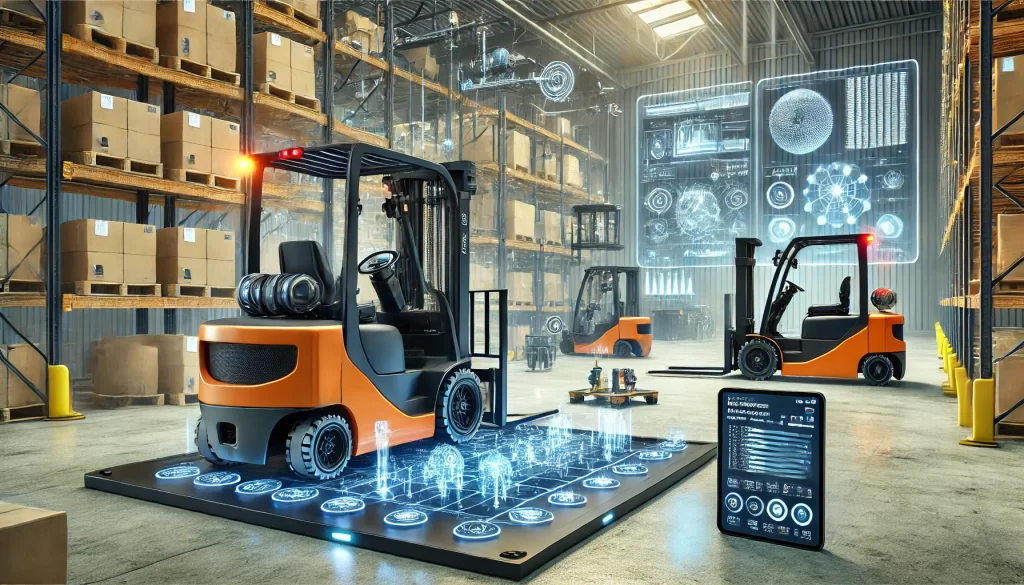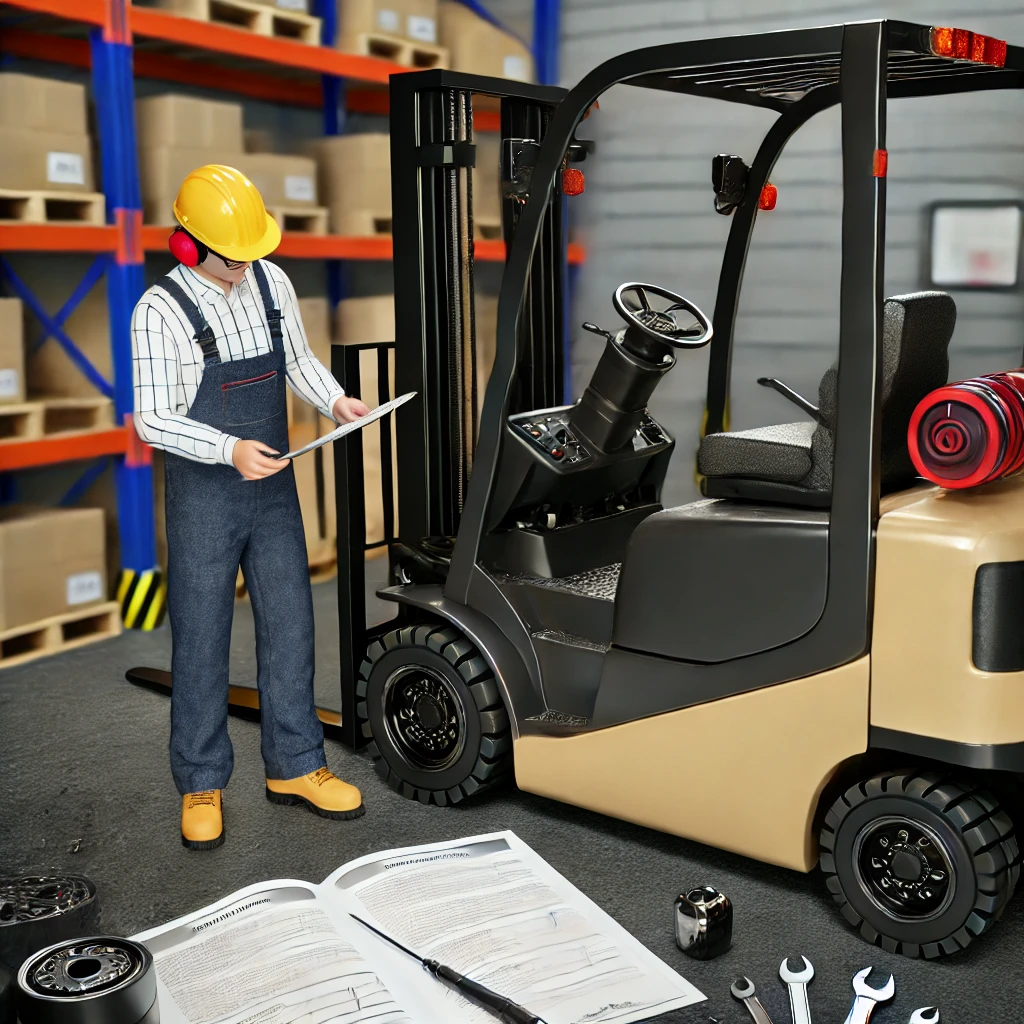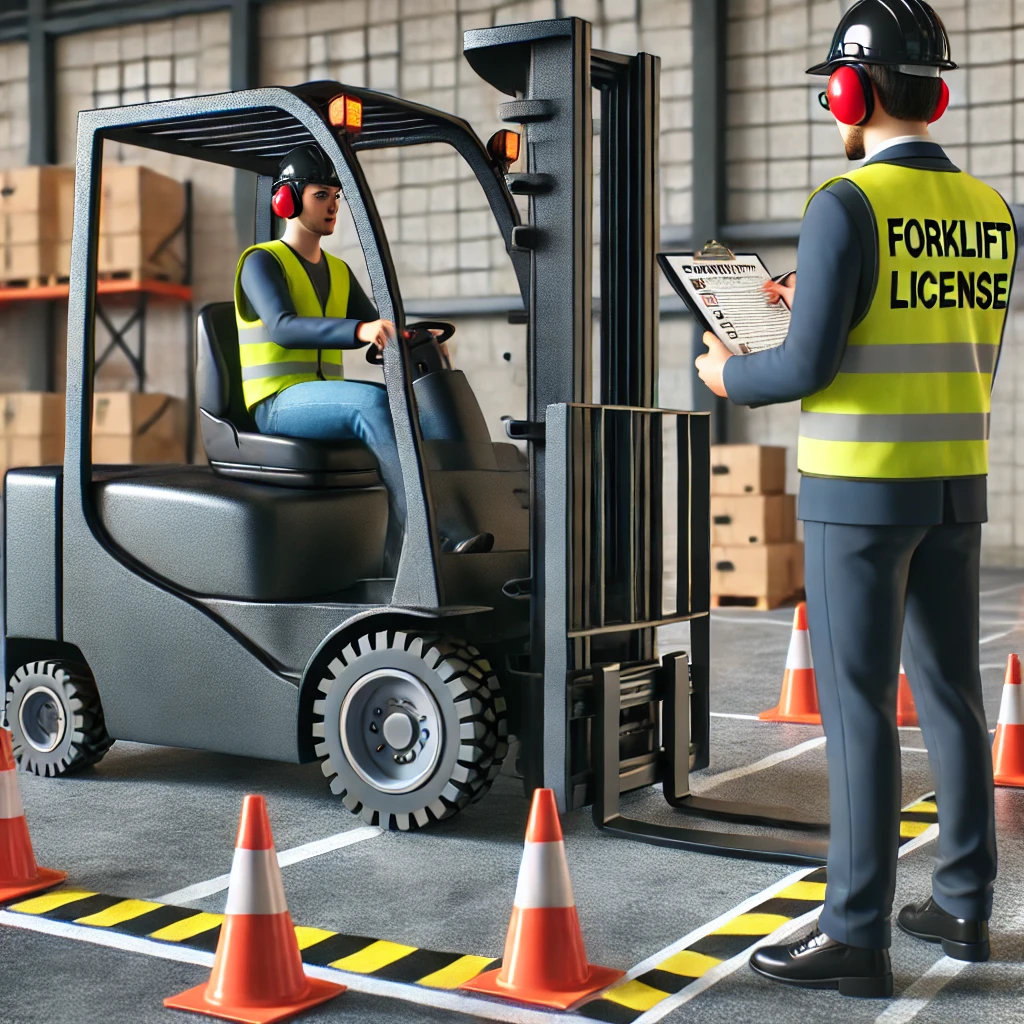Forklifts have been an essential part of industries like warehousing, construction, and manufacturing for decades. But, like everything else, forklift technology is evolving, and the changes we’re seeing are transforming the way businesses operate. Let’s take a look at some of the recent innovations, such as automation and electric forklifts, and how these advancements are shaping the future of forklift operations.
Automation: The Forklifts of Tomorrow are Here Today
We’ve all heard about automation taking over various industries, and forklifts are no exception. Autonomous forklifts, also known as self-driving forklifts (for eg. Laser Guided Vehicles), are becoming a reality in many modern warehouses and factories. These machines are equipped with sensors, cameras, and advanced navigation systems, allowing them to move materials around a facility without having to rely on a person to drive & operate it.
Sounds like something out of a sci-fi movie, right? Well, it’s already happening.
Automated forklifts can be programmed to follow specific routes, pick up and drop off loads, and even avoid obstacles – all while running 24/7. This level of efficiency is a game-changer for businesses that need to operate at high capacity. Not only do they save on labour costs, but they also reduce the likelihood of human error, making warehouse operations smoother and safer.
But don’t worry, humans aren’t being replaced just yet! These machines still require skilled workers to oversee their operation and handle any issues that arise. The future of forklifts is a collaboration between man and machine, not a replacement.
Electric Forklifts: A Cleaner, Greener Future
One of the biggest changes in forklift technology in recent years is the shift towards electric forklifts. Traditionally, forklifts have run on diesel or LPG, but electric forklifts are quickly gaining popularity for a number of reasons.
First off, they’re much better for the environment. Electric forklifts produce zero emissions, making them a cleaner option, especially for indoor use where air quality can be a concern. With industries increasingly focusing on sustainability, electric forklifts offer a green alternative that reduces the overall carbon footprint of a business.
In addition to being eco-friendly, electric forklifts are also quieter and require less maintenance than their fuel-powered counterparts. There’s no need for regular fuel refills, oil changes, or dealing with noisy engines. This not only saves businesses money in the long run but also provides a more pleasant working environment for employees.
And with battery technology constantly improving, modern electric forklifts can operate for longer periods on a single charge. Plus, advancements in fast-charging technology mean that downtime is significantly reduced – a win-win for productivity!
Smart Forklifts: Data-Driven Efficiency
As we move further into the digital age, forklifts are getting smarter. Forklifts equipped with telematics systems can now collect and analyse data in real-time, giving operators and managers insights into how these machines are being used.
Data like operating hours, load weight, and route efficiency can be tracked and used to optimise operations. This allows businesses to identify bottlenecks, improve fuel efficiency, and even predict when a machine might need maintenance, reducing downtime.
With everything connected to a central system, managers can monitor an entire fleet of forklifts from a single dashboard, making it easier to manage larger operations and make informed decisions about staffing and equipment.
What Does This Mean for Forklift Operators?
Now, you might be wondering what all these advancements mean for the forklift operators out there. While technology is certainly changing the way forklifts are used, human expertise is still critical.
Automation and smart systems can handle repetitive tasks, but trained operators are still needed to oversee these machines, troubleshoot issues, and ensure that everything runs smoothly. In fact, as forklift technology evolves, the role of operators is becoming more technical, with a focus on overseeing systems and managing more advanced equipment.
For those entering the industry, it’s an exciting time. There are more opportunities to learn new skills, work with cutting-edge technology, and be part of an industry that’s constantly moving forward.
The Road Ahead
As forklift technology continues to evolve, we can expect even more innovations that will push the boundaries of what these machines can do. From fully autonomous fleets to energy-efficient electric forklifts, the future of forklift operations is bright.
Whether you’re a business owner looking to upgrade your fleet or a forklift operator eager to stay ahead of the curve, keeping an eye on these technological advancements is key. The forklift industry is changing, and those who embrace these changes will be well-positioned for success.
In conclusion, forklift technology is moving fast, and the future is all about automation, electric power, and smart data. It’s an exciting time to be in the industry, with innovations making operations safer, more efficient, and more environmentally friendly. Whether you’re operating a forklift or managing a fleet, embracing these changes will keep you ahead in the game.







